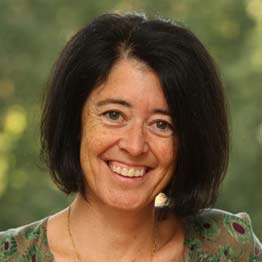Modern political theology

PROJECT COMPLETED (2009-2015)
The goal of this project was to study the philosophical and juridical influence of theological-political texts on modern revolutions and their consequences for human existence and worldview.
To achieve this goal, the project sought to establish a dialogue between different disciplines -the Philosophy, theology, history and law- in order to analyze the relationships between religion, science and politics in modern times, starting from their medieval foundations. The consolidation of these relationships and the consequent tension between them helped to shape the concept of modern freedom and, as a consequence, an impact on the revolutionary epochs in America, Europe and Asia.
Branch:
- Modern Political Theology (PDF)
1. Secularization is not necessarily an result exclusive to modern Philosophy and theology, although it represents a major step in this direction. The late modern period average was also secularized but not in a negative sense, as in the early modern age. A distinction must be made between positive and negative secularism. Negative secularism implies eradicating the realm of the sacred from the world by transforming this realm into a political, scientific or any other realm subject. Positive secularism means preserving the lawful distinction and autonomy between the sacred and the profane and preventing confusion between the two realms. The project will address the theoretical approach of the hypotheses developed in this regard by contemporary thinkers such as Max Weber, Leo Strauss, Karl Löwith and Hans Blumenberg. It will also contrast their approach with the results of our research to propose alternatives to the difficult question of the secularization of the modern world.
2. The close relationship between theological, philosophical-scientific and political arguments should be taken into account when articulating and specifying the speech about freedom. For this we must approach it in an interdisciplinary way.
3. Modern historical revolutions depended on and were conditioned by this class of interrelationships in argumentations.
4. The contemporary speech contemporary on freedom and religion still depends on the arguments of the early modern era.
Carl Schmitt suggests in his work Political Theology (1922) -for the first time in history- the concept of political theology within a theoretical framework . He proposes a research field in which, for a correct understanding of juridical or political concepts with all their significance within the context of modernity, we establish systematic and methodological analogies. Although we cannot take Schmitt's work as the only model , this methodological hypothesis is very fruitful in exploring the proposed topic , as has been demonstrated in the classical literature. The "Begriffsgeschichte School" led by Reinhard Koselleck was particularly inspired by this idea.
Thus, the method that project intends to develop has three fundamental aspects:
1. That the metaphysical image of the world forged by an epoch has the same structure as the form of political organization understood at that time as the most appropriate.
2. That all significant concepts of modern state theory are secularized theological concepts not only because of their historical development but also because of their systematic structure.
3. That the modernPhilosophy , modern political Philosophy and political history use a theological form to legitimize politics.
These are the three methodological hypotheses with which political theology works. Erns Kantorowicz followed these hypotheses for the analysis of the political thought of the Age average. The team of 'Religion and Civil Society' seeks to develop these methodological hypotheses in an original way by considering the various disciplines
